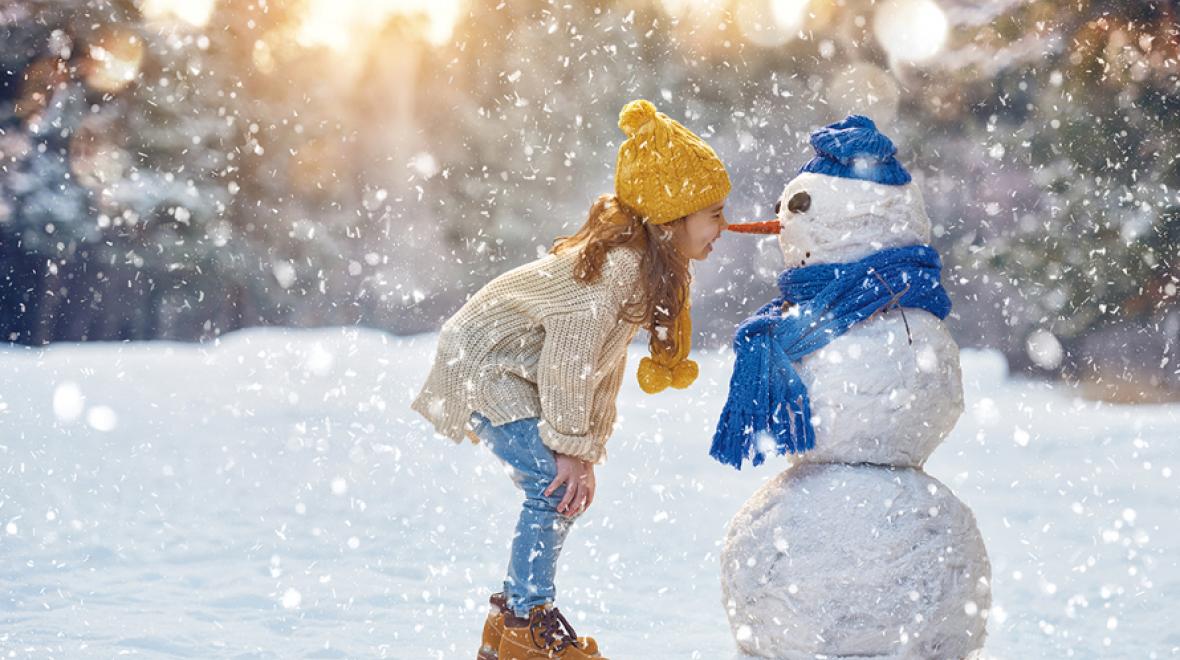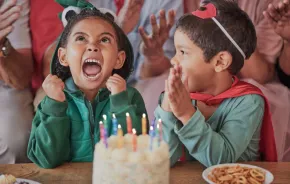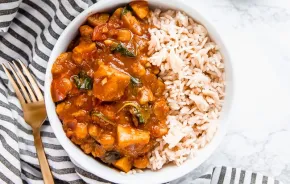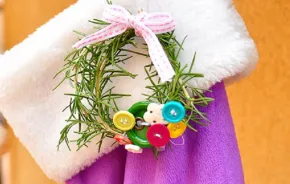
Even in the best of years, the holiday season is a paradoxical balance of stress and joy. This year, trying to pull off all the decorating, cooking, baking and shopping amid pandemic precautions can feel overwhelming, yet at the same time, we desperately miss the parties and family reunions. Many of us are ping-ponging between the urges to call the whole thing off and to just ignore the pandemic and host that big extended-family get-together anyway. But neither of those options is healthy. With the right mindset, it is possible to have your holidays this year, and to enjoy them.
Christmas is (not) canceled
Remember all those old TV specials, the ones in which the grown-ups sadly declare, “We’ll just have to cancel Christmas this year”? Somehow, Santa always manages to save the day. These stories of Christmas in peril might have been preparing us for 2020, because even when things are going wrong, we shouldn’t give up on the holidays.
“The holidays are a supercharged time of year,” says Liz Covey, a licensed therapist and parent coach. In a culture that prioritizes practicality, the holidays are the one time when we are encouraged to seek meaning.
“Ritual is the way we collectively participate in meaning, and it also has to do with how we structure our lives in pointing towards the next event that brings us together, and hopefully brings joy,” says Covey. So much of life — especially parenting — is mundane. Holidays and the rituals that accompany them allow us to carve time out of routine and make space for togetherness.
“It’s how we work as people,” says Covey. In fact, she says, there is research linking an absence of participation in ritual with some psychological struggles. When times are tough, we might need the holidays more than ever.
The risk is real
Although canceling the holidays isn’t good for our mental health, the physical health risks of a “business as usual” holiday season cannot be ignored. Office parties and traveling to visit family not only increase your own risk of becoming infected with the coronavirus, they increase the risk that you could infect the people you care about.
“Parents really have to be mindful this year, because a lot of those rituals that we participate in usually are group events,” notes Covey.
No matter where you draw the line regarding your own personal risk tolerance, this year will involve a lot less travel and socializing.
“It is a loss,” admits Covey, “but it’s also got this silver lining, which is that families get to be closer — and sort of have to be closer. Families get to slow down and spend a lot of time together.” And that is what the holidays are really about.
Better living through technology
In some ways, social distancing has thrown families into a sort of “Little House on the Prairie” type of situation in which DIY, home-based activities replace social and commercial group events. But no matter how heartily sick we may be of communing via Zoom, there is no doubt that at least some of our holiday cheer will be filtered through a layer of technology.
“In perfect American style, I feel like we leapt on the new technology and did it to death,” says Covey. The trick is to be more deliberate about how we use our technology tools. “Kids don’t want to sit still and listen to talking heads,” she says, especially when they have to do that for school all week long.
“We’re putting a lot of pressure on kids to meet adult standards,” says Covey. Instead, keep calls short and engaging. Play games such as Hangman or 20 Questions. Have the kids give a performance, receive applause and then go play while the grown-ups keep talking. Or let kids text instead — even little kids can communicate with grandparents using emojis and photos. It doesn’t matter what the medium is, the point is to make a connection.
Recipe for meaning
“We want to keep [the instillment of meaning] at the center,” says Covey. “I think the gift of this year is that there’s no expectation of the common routine.” Although the additional layer of stress in evaluating every activity for potential COVID-19 risk is fatiguing, “it makes us really selective about what we do. We whittle it down to what works,” she says.
Using the activity-building model of play therapy, Covey suggests a recipe for parents who are trying to create a meaningful holiday. The four ingredients for meaningful activities are:
- Structure
- Nurture
- Engagement
- Challenge
Whether it’s experiencing The Elf on a Shelf or lighting Hanukkah candles, rituals meet the need for structure. These activities provide meaning and continuity, but they only nurture when they include an element of warmth.
It’s not enough to check items off an activity list. If kids aren’t interested or parents act like drill sergeants, there won’t be much joy in the togetherness. Engagement is your chance to get creative and make things fun and unexpected. Hide presents like you hide Easter eggs, play games you don’t normally have time for. Don’t worry if things seem too silly; Covey says that during the pandemic, you can skew activities a little younger than your kids’ ages.
But even if we all regress a bit under stress, we still need the fourth element, challenge, to be part of the mix. Gently push each other out of your comfort zones. That might mean encouraging a younger child to speak up on a Zoom call with relatives, a middle schooler to reach out to their friends, or your teen to talk more openly about their feelings.
These symbolic rituals that honor our past traditions are not as good as what we did before the pandemic, or what we will do after it. But they can be good enough for now.
Good enough until it gets better
No one should expect that simultaneously making a favorite dish while chatting on Zoom with a faraway relative is as good as a kitchen full of family, or that texting pictures of a pie is as good as sitting down together to eat it.
“We want to see [holiday traditions] for what they are — they’re symbolic. They’re a gesture. It’s not going to be like normal. It’s a placeholder until we can do things safely again,” says Covey. These symbolic rituals that honor our past traditions are not as good as what we did before the pandemic, or what we will do after it. But they can be good enough for now.
Quarantine-good holidays may be a bit of a hard sell to the kids, who can be even more attached to traditions than adults. Covey says the TV show “Nailed It,” in which amateur bakers are set up to fail, with hilarious results, is an excellent model for approaching the holidays this year.
“I think the best way is to be lighthearted and use humor,” says Covey. If parents model a can-do attitude and laugh at the inevitable absurdities of a socially distant holiday, kids will follow suit.
Of course, when so many treasured experiences are out of reach, it’s natural to feel disappointment and even grief some of the time. But remaining hung up on high expectations or mired in grief makes it impossible to fulfill a parent’s role of leading the way to a good-enough holiday season during a hard time. For some parents, especially single parents, those who are out of work or those who have lost loved ones to the virus, approaching the holidays with humor and joy may be too tall an order.
“There are going to be people who aren’t able to do this, and those parents who are really struggling should reach out [for support],” says Covey. Whether it means talking to a therapist, a parent coach, support group, family or friends, some parents need more help to carry the family through the holidays. Getting help when you need it can make the difference between just surviving the holidays and enjoying a meaningful, good-enough holiday season.











